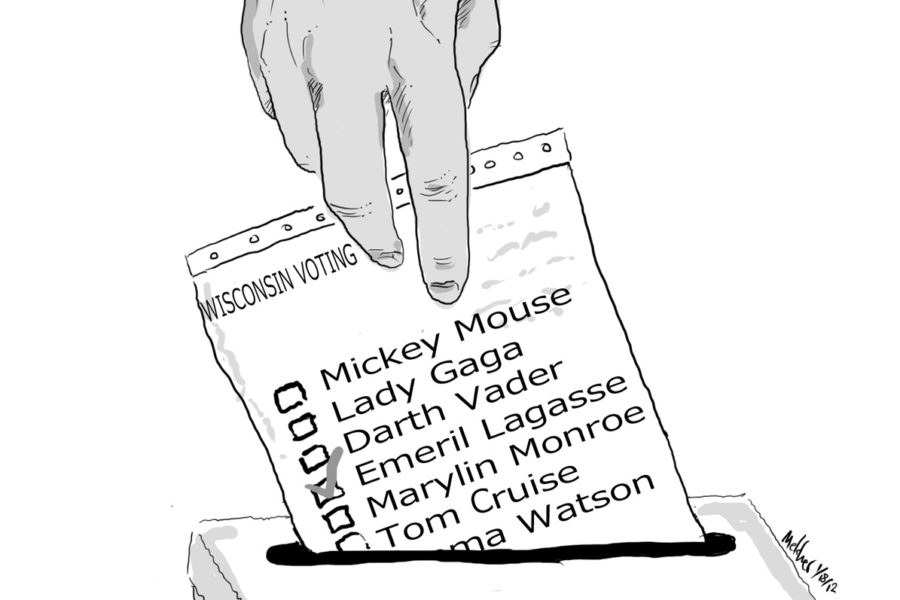Editorial: Know the character of your candidates before you elect them
Illustration: Jordan Melcher/Iowa State Daily
Editorial cartoon
January 20, 2012
Earlier this week Wisconsin Democrats filed a petition for the recall election of Gov. Scott Walker. The petition gathered 1 million signatures, matching the number of votes against Walker in the gubernatorial election of 2010. This is nearly double the number of signatures necessary to conduct the recall.
Regardless of your opinion on Walker’s ability to govern or his decisions made in office, this is a real public concern. The public elected a man with well over 1 million votes, and a year later changed their minds. It is either a great triumph of political liberty or the result of an uniformed electorate.
The problem is the campaigning process and how people receive information. The election process was once designed to ensure that the best leader won the election. In principle politicians travel from town-to-town making themselves available to constituents and declaring their positions.
Speeches were relatively unscripted, issues where the main topic, and substantive debates were frequent. The process was designed to expose politicians to the public and inform us of the individual candidates’ agendas.
For a long time this process worked. Recall elections have been particularly rare in our history. Informed during campaigns and elections allowed people to make the proper decision based on who the candidates were and what they would do in office.
The process worked and this made recall elections unnecessary. Sadly, the process has changed, and the result is a sharp increase in recall elections. In U.S. history, there has been a total of 21 recall elections before 2011. Last year there were 11.
Recall elections for governors are even rarer. There has only been two successful recall elections in history: North Dakota in 1921 and California in 2003. The Walker recall election will mark the occurrence of a formerly rare but increasingly frequent event.
In addition to Wisconsin’s petition to recall Governor Walker, there are five other petitions being filed in Wisconsin — one to recall the lieutenant governor and four separate petitions for four state senators. The signatures on those petitions total nearly 2 million names.
The increase of recall elections seems to indicate inexperienced and opaque men and women are making it into office. Once candidates are in office, their decisions quickly repel approval.
Public officials exercise very important functions within our political worlds. It is critical for the voters to know the character of their candidates and their agendas and approaches. Instead of holding recall elections, we should get it right the first time and find out whom we’re voting for and what they plan to do.







